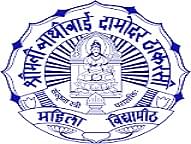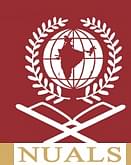Unveiling the Power of Data: B.Com in Business Statistics
In today's data-driven world, businesses rely
heavily on statistical analysis to make informed decisions. A Bachelor of
Commerce B.Com in Business Statistics is an excellent choice for
students interested in understanding and utilizing data to drive business
success. This blog will explore the significance of a B.Com in Business
Statistics, its curriculum, career prospects, and why this degree is a vital
asset in the modern business landscape.
The Importance of Business Statistics
Business statistics is a critical field that
involves collecting, analysing, interpreting, and presenting data to aid in
decision-making processes. In an era where data is considered the new oil,
businesses across various industries depend on statistical analysis to gain
insights, identify trends, and make strategic decisions. A B.Com in Business Statistics at top college equips students with the skills needed to handle
and interpret data effectively, making them invaluable assets in the corporate
world.
Curriculum of B.Com in Business Statistics
The curriculum of B.Com in Business Statistics collegeis
designed to provide a comprehensive understanding of both commerce and
statistics. It blends traditional commerce subjects with specialized courses in
statistics and data analysis. Here's an overview of the core subjects typically
included in the program:
1. Principles
of Accounting:
- Introduction to financial accounting and management accounting.
- Understanding financial statements, balance sheets, income
statements, and cash flow statements.
- Basic accounting principles, bookkeeping, and financial reporting.
2. Microeconomics
and Macroeconomics:
- Fundamentals of microeconomic theory, including demand and supply,
market structures, and consumer behavior.
- Macroeconomic concepts such as inflation, unemployment, economic
growth, and monetary and fiscal policies.
3. Business
Mathematics:
- Mathematical techniques and methods used in business analysis.
- Topics include algebra, calculus, probability, and optimization.
4. Statistical
Methods:
- Introduction to descriptive and inferential statistics.
- Data collection methods, sampling techniques, and probability
distributions.
- Hypothesis testing, correlation, regression analysis, and variance
analysis.
5. Data
Analysis and Interpretation:
- Techniques for analyzing and interpreting business data.
- Use of statistical software and tools for data analysis.
- Application of data analysis in real-world business scenarios.
6. Business
Research Methods:
- Research design, data collection, and data analysis techniques.
- Qualitative and quantitative research methods.
- Developing research proposals and reports.
7. Operations
Research:
- Optimization techniques, linear programming, and decision-making
models.
- Application of operations research in business processes and
resource allocation.
8. Financial
Management:
- Principles of corporate finance, financial planning, and budgeting.
- Investment analysis, capital structure, and risk management.
9. Marketing
Research and Analysis:
- Techniques for collecting and analyzing market data.
- Consumer behavior analysis, market segmentation, and product
positioning.
Why Choose
a B.Com in Business Statistics?
1. High
Demand for Data Analysts:
- In the digital age, businesses generate vast amounts of data.
Professionals skilled in business statistics are in high demand to analyse
this data and provide actionable insights.
2.
Versatile Career Opportunities:
- A degree in Business Statistics opens doors to various industries,
including finance, marketing, healthcare, retail, and government.
Graduates can pursue roles such as data analyst, business analyst, market
researcher, and financial analyst.
3. Strong
Foundation in Commerce and Statistics:
- The program provides a balanced education in commerce and
statistical analysis, equipping students with a robust skill set
applicable to multiple business functions.
4. Enhanced
Decision-Making Skills:
- Business statistics empowers students to make data-driven
decisions, improving their problem-solving and critical-thinking
abilities. This skill is invaluable in strategic planning and operational
efficiency B.Com in Business Statistics at best university.
5.
Preparation for Advanced Studies:
- Graduates of B.Com in Business Statistics are well-prepared for
advanced studies, such as a Master's in Business Analytics, MBA, or
specialized certifications in data science and analytics.
Career
Prospects for B.Com in Business Statistics Graduates
Graduates with a B.Com in Business Statistics have a wide range of career opportunities available to them.
Here are some potential career paths:
1. Data
Analyst:
- Analyzing data to identify trends, patterns, and insights.
- Preparing reports and visualizations to support business decisions.
2. Business
Analyst:
- Evaluating business processes and identifying areas for
improvement.
- Using statistical techniques to support business strategy and
operations.
3. Market
Research Analyst:
- Conducting market research to gather data on consumer preferences,
market trends, and competitive analysis.
- Providing insights to guide marketing strategies and product
development.
4.
Financial Analyst:
- Analyzing financial data to assess investment opportunities and
financial performance.
- Preparing financial models and forecasts to support financial
planning.
5.
Operations Analyst:
- Using statistical methods to optimize business operations and
improve efficiency.
- Analyzing operational data to identify bottlenecks and recommend
solutions.
Conclusion
A B.Com in Business Statistics is a
valuable degree that provides students with the skills and knowledge needed to
excel in the data-driven business world. The program's comprehensive
curriculum, blending commerce and statistical analysis, prepares graduates for
a wide range of career opportunities. As businesses continue to rely on data to
drive decision-making, the demand for professionals skilled in business
statistics will only increase. Pursuing a B.Com in Business Statistics is a
smart choice for students looking to make a significant impact in the modern
business landscape.












